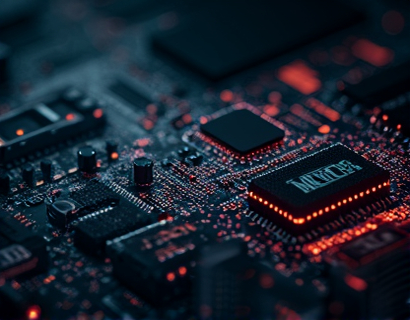Revolutionizing Music Management: Advanced Software Solutions for Educators and Business Owners
In the dynamic world of music education and business, managing operations efficiently is crucial for success. The integration of advanced software solutions has emerged as a game-changer, offering tools that streamline operations, enhance communication, and optimize resource management. These technologies allow educators and business owners to focus more on nurturing talent and driving creativity, the core elements of any music program. This article delves into the transformative impact of these software solutions, exploring how they can revolutionize music management.
The Need for Advanced Software in Music Management
Music education and business entities face unique challenges, from scheduling numerous classes and performances to managing a diverse range of instruments and equipment. Traditional methods of managing these tasks are often time-consuming and prone to errors. Advanced software solutions address these issues by providing comprehensive tools designed specifically for the needs of music professionals. These solutions not only save time but also reduce the potential for human error, ensuring that operations run smoothly and efficiently.
Streamlining Operations
One of the primary benefits of advanced software in music management is the ability to streamline operations. Scheduling is a critical aspect of any music program, involving countless classes, rehearsals, and performances. Software solutions offer intuitive calendar systems that allow for easy scheduling and rescheduling of events. These systems can automatically send notifications to participants, ensuring everyone is informed of any changes. Additionally, they can integrate with other tools and platforms, creating a seamless workflow that reduces the administrative burden on educators and business owners.
Resource management is another area where software shines. Music programs often require a variety of instruments, equipment, and materials. Advanced software can track inventory, monitor usage, and even facilitate reservations for instruments. This not only ensures that resources are used efficiently but also helps in maintaining equipment in good condition through regular maintenance alerts. By having a centralized system for managing resources, music professionals can focus on teaching and creative activities rather than worrying about where the next violin will come from.
Enhancing Communication
Effective communication is vital in any educational or business setting, and music management is no exception. Advanced software solutions provide robust communication tools that facilitate better interaction among students, teachers, and staff. Integrated messaging systems, email notifications, and discussion forums enable real-time communication, ensuring that everyone is on the same page. This is particularly beneficial for remote or hybrid learning environments, where maintaining clear communication channels is essential.
Parent-teacher conferences and meetings with stakeholders can also be managed more efficiently through these platforms. Virtual meeting capabilities allow for convenient and flexible communication, reducing the need for physical meetings and saving time. By centralizing communication within a single platform, music programs can ensure that information flows smoothly and that all parties are well-informed.
Optimizing Resource Management
Optimizing resource management is crucial for the sustainability and success of music programs. Advanced software solutions offer features that help in managing finances, equipment, and personnel more effectively. Financial management tools allow for detailed budget tracking, expense reporting, and invoicing. This level of transparency and control helps in making informed financial decisions and ensures that funds are used efficiently.
Equipment management is another critical aspect. Software can track the condition, location, and usage of instruments and other equipment, ensuring that they are maintained and available when needed. Alerts for maintenance or repairs can be set up, preventing unexpected breakdowns and downtime. This proactive approach to equipment management helps in maintaining a high standard of instruction and performance.
Personnel management is also streamlined through advanced software. Features such as attendance tracking, time management, and performance evaluations help in managing staff effectively. This not only improves operational efficiency but also supports the professional development of educators and staff, contributing to a more cohesive and motivated team.
Fostering Creativity and Nurturing Talent
While advanced software solutions significantly improve operational efficiency, their ultimate goal is to free up time and resources for the core mission of music education and business: nurturing talent and fostering creativity. By automating routine tasks and providing powerful tools for management, educators and business owners can dedicate more time to what they do best—teaching, mentoring, and inspiring the next generation of musicians.
Customizable lesson planning tools within the software can help teachers create engaging and tailored lesson plans. These tools can suggest activities, provide resources, and even track student progress, making it easier to design effective and personalized learning experiences. This level of support ensures that each student receives the attention and guidance they need to thrive.
Performance scheduling and management become more efficient, allowing for a greater number of performances and opportunities for students to showcase their skills. The software can handle logistics such as venue bookings, marketing, and ticket sales, reducing the workload on staff and allowing them to focus on coaching and performance preparation.
Case Studies and Success Stories
Several music education and business entities have already experienced the transformative impact of advanced software solutions. For instance, a large music school in a urban area implemented a comprehensive management system to handle their growing student base and expanding program offerings. The result was a significant reduction in administrative tasks, allowing teachers to focus more on instruction and student engagement. The school reported a 30% increase in student satisfaction and a 25% improvement in operational efficiency within the first year of implementation.
Another example is a community music center that used software to manage their diverse range of programs, from children's music classes to adult ensembles. The center saw a 40% reduction in scheduling conflicts and a 50% decrease in equipment downtime. The streamlined communication tools also led to better parent engagement and higher enrollment rates. The center's director attributed the success to the software's ability to "take the hassle out of management, allowing us to focus on what matters most—our students and their musical journeys."
Future Trends in Music Management Software
The landscape of music management software is continually evolving, with new features and integrations being developed to meet the changing needs of educators and business owners. One emerging trend is the integration of artificial intelligence (AI) and machine learning (ML) to provide more personalized learning experiences and predictive analytics for better decision-making. AI can analyze student performance data to suggest tailored practice routines and identify areas where additional support is needed.
Another trend is the increased focus on collaboration and community building. Software platforms are incorporating features that facilitate connections between students, teachers, and industry professionals. Virtual jam sessions, online workshops, and mentorship programs are becoming more common, creating a vibrant and supportive community for music enthusiasts.
As technology advances, the integration of augmented reality (AR) and virtual reality (VR) into music education is also on the horizon. These technologies can provide immersive learning experiences, allowing students to practice in virtual environments and explore musical concepts in innovative ways. The potential for AR and VR to enhance the learning experience is vast, and software solutions that support these technologies will be at the forefront of the next generation of music management tools.
Conclusion
Advanced software solutions are revolutionizing music management by streamlining operations, enhancing communication, and optimizing resource management. These tools empower educators and business owners to focus on nurturing talent and driving creativity, the essence of music education and business. By adopting these technologies, music programs can achieve greater efficiency, better student outcomes, and a more sustainable future. As the field continues to evolve, the potential for innovation and improvement is immense, ensuring that music management will remain a dynamic and exciting field for years to come.










































